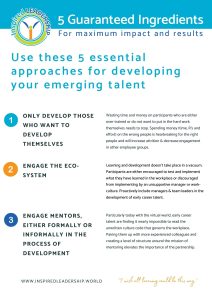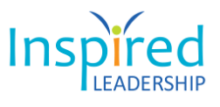Young talent entering the workforce are facing unprecedented obstacles:
- Organisations are holding on (through contract extensions & postponing retirement) to older and often senior employees because of perceived institutional knowledge and irreplaceable skills.
- Older employees are reluctant to retire, mainly due to financial reasons and a lack of preparedness for retirement.
- Lack of senior openings impacts career growth of middle career employees and has a knock-on effect for entry level employees.
- The sheer volume of young people in South Africa with tertiary qualifications makes getting a job something of a small miracle.
But attracting and recruiting young, hot skills is a business imperative for many reasons:
- Young and hot skills bring new energy and a learning mindset into the workplace.
- With that comes an openness to new ideas, technologies, and innovation.
- They are often “blank slates”. They do not have habits & expectations from previous workplaces that are hard to break, giving you an opportunity build from the foundation up and align behaviour with your company culture.
- Recent experience of formal learning can make early talent eager to share ideas and challenge the existing status quo. While constantly asking “Why do we do it like this?” might seem endearing at best and frustrating at worst, it is worth paying attention: their questioning can be just the challenge required to shift into simpler, better, faster working practices.
- Young and new is more cost-effective than older and experienced, but the cost v benefit analysis can swing in both directions.
- Change weariness amongst older employees and a natural inclination to hang on to the way things are, can negatively affect organisational culture, making young and new talent essential to shift culture.
Early talent have a “fit-gap”
Early Talent however seldom “fit” into an organisation quickly and easily. Covid & remote work has made this even more challenging as early talent don’t pick up on the nuances of the workplace; miss out on the culture transfer of “how things get done around here” and often don’t receive the high-touch onboarding that needs to last a good 2 years to fully integrate a new, young employee into an organisation.
In some instances, the technical know-how that early talent bring into the workplace is a 70-80% fit but the behavioural elements of working are only at 40-50%. In other cases, where the role requires significant industry experience or organisational knowledge the fit is much lower with a 70% gap (particularly in complex IT organisations)! This very real challenge makes success at an early career stage rather elusive and further confirms the need for older and more experienced employees to be retained beyond their sell-by date.
Organisations and individuals must take action to address gaps
In my own experience, recruiting SA graduates doesn’t at all guarantee technical/functional skills and it doesn’t guarantee professional workplace skills either. Having worked closely with an early career graduate for 18 months, it is clear that she still struggles with planning and following up on work products, owning the feedback loop, and communicating professionally.
After researching beyond my perspective and interviewing several clients and associates across industry, it is these & other interpersonal and professional skills that present the greatest barrier to success for early career talent.
Organisations might be eager to recruit young talent, but sluggish or reluctant to develop them. Eager to identify “high-potential-talent” but then struggle with what to do with them.
Spreadsheets manage the “succession plan” and the “high potential talent” list but most HR departments are still wondering what to do with early talent so that they have time to grow up in the organisation and deliver the return on investment of their hire and deliver on the promise of being future organisational leaders.
The biggest challenge of neglecting this group is, as one of my clients says “The Young and Hot won’t remain Young and Hot, because they will be influenced by the Old and Cold, which will result in a duplication of poor behaviours”.
Proactive HR departments are creatively designing or partnering to design talent retention and development approaches that give young talent the essential personal, interpersonal, and professional skills that round out the content knowledge built through formal education.
What is being done to integrate and retain talent?
In one of my interviews, the HR Director (big international corporate with SA and African presence) explained that they are putting together communities of talent from different business units and levels with a specific stretch project and expected deliverable. The project isn’t completely tied to a pressured time frame, but the insights from this cross-sectional talent group will inform policy going forward. The task: Define the Future of Work. Together with the young and hot talent, more experienced HIPO talent from various levels and departments across the organisation grapple with this and other very real challenges, learn more about each other and the organisation, and get exposed to thinking outside their functional role and area.
Another large insurance organisation emphasises the need to be “all-in” with onboarding. This key time in the career journey is when “we tell the stories we want to tell” and align expectations. What they are also seeing is that many early career entrants might have the required functional or technical skills but they are not mentally and emotionally equipped to cope with the environment. As a result they continuously emphasise the development of core intra and interpersonal skills development, believing that “the more people understand themselves, the sooner they can be productive.”
In another conversation, the HR Leader reflected on a highly specialised technical talent who had very low emotional maturity. How the young talent handled feedback and team dynamics negatively impacted her reputation & success. The HR leader commented:
The development gaps in early talent are easy to identify, but not often are organisations prepared to walk alongside and close those gaps. Often that journey can take quite a while and it is quicker and easier to move on to less “needy” employees.
The common development areas that emerge when considering emerging leaders include:
- Lack of a business and personal network to draw on to solve problems and think systemically
- Low self-awareness, which results in people not knowing their values, their strengths, their gaps? They struggle to align who they are with the organisation they work in?
- They have lower emotional intelligence, particularly self-management. This was obvious with remote work and the performance concerns that emerged without a formal structure to support them.
- Avoidance of difficult conversations. Most people struggle with this, and as a result avoid asking for or giving uncomfortable feedback, miss deadlines and feel psychologically unsafe in the workplace, because of a lack of robust conversational intelligence.
In South Africa, the challenges faced by organisations recruiting a diverse entry-level talent pool are quite stark. Young people have radically varying experiences and backgrounds that shape their emotional, moral, social, and psychosocial development. In one of our clients, it has been humbling to hear how impactful the learning in the Emerging Leaders Journey has been because these not-so-young participants have NEVER had meaningful exposure to life-changing concepts like self-awareness, vision and goal setting, and managing difficult conversations. The feedback and discussion in our facilitated sessions demonstrate that although the learning experience has been scaffolded by a progressive learning department and organisation, the impact is experienced well beyond the office and into the family and broader community. They share stories about how they are handling family conflict in a very different way; managing their money with far more long-term thinking, and speaking up and offering alternative points of view to the established (and in some cases dysfunctional) norm.
The call to action
Even though in South Africa we have an abundance of people in the 18-30-year-old age category, identifying and walking a meaningful path with the emerging leaders in your organisation will bring new energy and enthusiasm, and if done right will also make a meaningful contribution beyond the walls and into the country. We believe that better leaders make better people and better people make better partners, parents, friends, and community members.
How are you making a difference?
Download the 5 Guaranteed Ingredients for developing your emerging talent:

About the Author:

Angela de Longchamps
She is also the founder & CEO of a unique Collaboration Economy blended learning approach and methodology called: Inspired Leadership, which offers a blended learning solutions for Emerging Leaders.
She is an event speaker, a mom to 3 teenagers and a dedicated cyclist. Check out her #lessonsfromthebike video’s for inspiration from the saddle!





